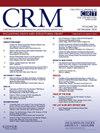30-Day unplanned readmission rates, causes and outcomes of patients hospitalized for acute coronary syndrome based on the trial participation status
IF 1.6
Q3 CARDIAC & CARDIOVASCULAR SYSTEMS
引用次数: 0
Abstract
Background
This study aimed to investigate the association between index trial participation status and 30-day unplanned readmission rates, causes, and outcomes in acute coronary syndrome (ACS) patients.
Methods
The National Readmission Database was analysed for all index hospitalizations with a principal diagnosis of ACS between October 2015 to November 2019, stratified by index trial participation status (International Classification of Diseases – 10th edition code: Z00.6). The 30-day unplanned readmission rates, causes and outcomes were analysed, including the assessment of factors associated with readmission. Multivariable regression analyses were reported as adjusted odds ratios (aOR) with 95 % confidence intervals (95 % CI). All analyses were weighted and utilized hierarchical multi-level organization.
Results
A total of 2,066,328 cases with a principal diagnosis of ACS were included in the study, of which there were 4061 trial participants (0.2 %) and 189,240 (9.2 %) cases experienced unplanned 30-day readmission. Rates of unplanned 30-day readmission were similar between trial participants and non-participants (9.8 % vs. 9.2 %, p = 0.16). Consistently, after multivariable adjustment, there was no significant association between trial participation and unplanned 30-day readmissions (aOR 0.96, 95 % CI 0.86–1.07, p = 0.45). Compared with trial participants, the majority of readmissions in non-participants were related to cardiovascular conditions (55.2 % vs. 46.7 %, p = 0.005, respectively). There was no significant difference in all-cause mortality (5.5 % vs. 4.6 %, p = 0.368, respectively), but trial participants were more likely to develop major bleeding (3.5 % vs. 2.1 %, p = 0.044), ischemic stroke (4.0 % vs. 2.1 %, p = 0.008) and haemorrhagic stroke (2.0 % vs. 0.6 %, p < 0.001) at readmissions.
Conclusion
Overall rates of unplanned 30-day readmissions after ACS are similar between trial participants and non-participants, but non-participation in trials was associated with a higher likelihood of cardiovascular readmission.
基于试验参与情况的急性冠状动脉综合征住院患者 30 天非计划再入院率、原因和结果
本研究旨在探讨急性冠脉综合征(ACS)患者的指数试验参与状况与30天非计划再入院率、原因和结局之间的关系。方法分析2015年10月至2019年11月期间以ACS为主要诊断的所有指标住院患者的国家再入院数据库,按指标试验参与状况进行分层(国际疾病分类-第10版代码:Z00.6)。分析30天非计划再入院率、原因和结果,包括再入院相关因素的评估。多变量回归分析报告为校正优势比(aOR), 95%置信区间(95% CI)。所有的分析都是加权的,并采用分层的多级组织。结果共纳入以ACS为主要诊断的患者2,066,328例,其中4061例(0.2%),189,240例(9.2%)出现非计划30天再入院。非计划30天再入院率在试验参与者和非试验参与者之间相似(9.8%对9.2%,p = 0.16)。一致地,在多变量调整后,参与试验与计划外30天再入院之间没有显著关联(aOR 0.96, 95% CI 0.86-1.07, p = 0.45)。与试验参与者相比,非参与者的大多数再入院与心血管疾病有关(55.2%对46.7%,p = 0.005)。全因死亡率无显著差异(5.5%比4.6%,p = 0.368),但试验参与者更容易发生大出血(3.5%比2.1%,p = 0.044)、缺血性中风(4.0%比2.1%,p = 0.008)和出血性中风(2.0%比0.6%,p <;0.001)。结论:参与试验的患者和未参加试验的患者在ACS后30天内意外再入院的总体发生率相似,但未参加试验的患者心血管疾病再入院的可能性更高。
本文章由计算机程序翻译,如有差异,请以英文原文为准。
求助全文
约1分钟内获得全文
求助全文
来源期刊

Cardiovascular Revascularization Medicine
CARDIAC & CARDIOVASCULAR SYSTEMS-
CiteScore
3.30
自引率
5.90%
发文量
687
审稿时长
36 days
期刊介绍:
Cardiovascular Revascularization Medicine (CRM) is an international and multidisciplinary journal that publishes original laboratory and clinical investigations related to revascularization therapies in cardiovascular medicine. Cardiovascular Revascularization Medicine publishes articles related to preclinical work and molecular interventions, including angiogenesis, cell therapy, pharmacological interventions, restenosis management, and prevention, including experiments conducted in human subjects, in laboratory animals, and in vitro. Specific areas of interest include percutaneous angioplasty in coronary and peripheral arteries, intervention in structural heart disease, cardiovascular surgery, etc.
 求助内容:
求助内容: 应助结果提醒方式:
应助结果提醒方式:


